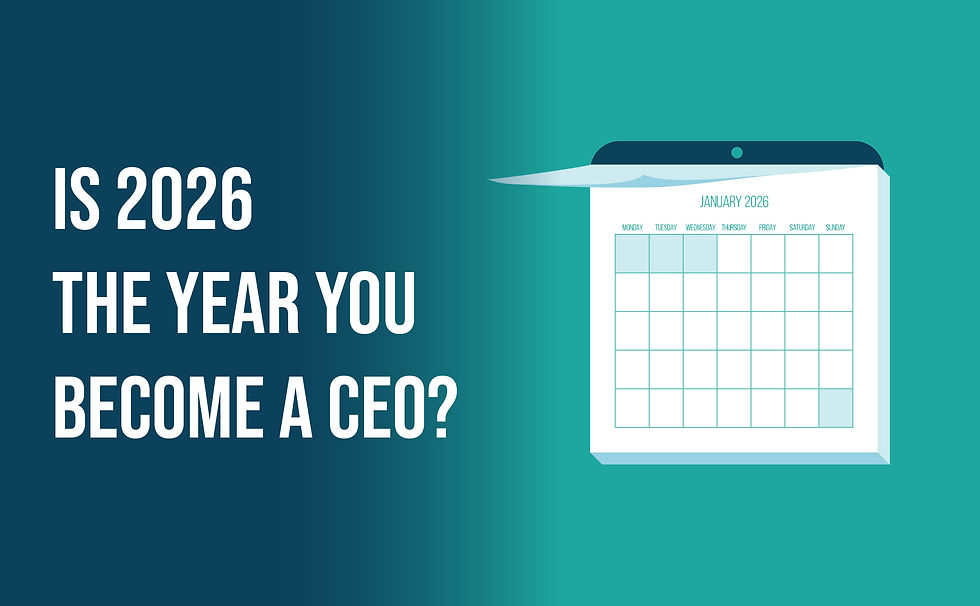How to demonstrate your stakeholder engagement skills in an executive job interview
- Aug 6, 2025
- 3 min read

Stakeholder engagement is a vital trait in leadership. It’s something that comes up in almost every executive job description.
Stakeholder engagement is the process of recognising, evaluating and consulting with the different parties who may be impacted by, or themselves affect, a project or organisation. External stakeholders can range from customers and suppliers to the regulator or local First Nations groups, while internal stakeholders may include your boss, peers or subordinates.
Being able to demonstrate your skills in stakeholder engagement is crucial in an executive interview setting. Search consultants and hiring managers want to know that you have the ability to engage with stakeholders, build relationships, and gather feedback to create successful outcomes for the organisation.
Here are some tips for demonstrating your storytelling skills in an executive job interview.
Set the scene with real-life characters
Executive Interview Coaching founder Richard Elstone says one of the key mistakes executives make is failing to set the scene when describing their stakeholder engagement experience. He says it’s important to create context for the hiring team by describing the characters in your story.
“If a banking executive talks about having to deal with the regulator, it could be a boring story if you just talk about it in the third person using words such as ‘them or they’,” says Richard. “What the executive should be doing is bringing the actual person into the story. I encourage the people I coach to really showcase the person that they’re dealing with.” Here’s an example.
Interview question: Can you provide an example of when your communication skills helped persuade a stakeholder?
Response: “Sam Smith is a 50-something year old executive who has been at the Australian Prudential Regulation Authority (APRA) for 25 years and has a bit of a prickly reputation. I decided to proactively reach out to Sam to discuss the fact that we were behind schedule. I laid the cards on the table, talked about the issues we were having, worked out an action plan with specific dates and then gave him my number, so that if he had an issue, however minor, that he wanted to discuss, he could call me directly at any time. He appreciated the gesture and our relationship and his with the bank, grew from there.”
Setting the scene with real-life characters brings your story to life. “It gives the interviewer a story that they can remember,” says Richard.
Share the challenges
Don’t be afraid to dive into some of the more challenging aspects of stakeholder engagement. For example, if you’ve had to turn around an underperforming employee, this kind of scenario is a great way to showcase your leadership skills and problem-solving abilities.
“Potentially you may have had to give some frank and fearless advice to very senior people or the board on what they needed to do,” says Richard. “Those kinds of examples make interesting stories in an interview. There’s no fun in talking about the easy day-to-day issues; you need to discuss the really challenging situations, where you’ve made a genuine impact.”
If you’ve helped resolve a conflict between stakeholders, it can be beneficial to share this experience in an interview. “Sometimes, one department might not get on well with another department,” says Richard. “Sales might be eternally optimistic, and finance might feel that figures are not being openly forecast. In this kind of scenario, you may discuss how you’ve turned around the heads of those departments and improved relations.”
Remember to describe the outcome
Don’t leave your audience hanging at the end of your story. Make sure you describe the situation, what action you took, and crucially, the end result.
What impact did the stakeholder engagement ultimately have?
Did you build a lasting relationship with the individual, for example? Did your action ultimately boost sales revenue?
Hiring managers and search consultants may be looking for specific skills such as relationship management or conflict-resolution, as outlined in the job description. Make sure you have relevant examples prepared that reflect those traits.
Talk it through with a professional coach
At Executive Interview Coaching, we offer a sounding board to bounce ideas off and provide expert advice about how to best answer those tricky interview questions. With our coaching support, you will feel confident and prepared to tackle every interview question, including those around your stakeholder engagement experience.
“Most people gloss over stakeholder engagement, but it’s something that’s really important,” says Richard. “You need to prepare for the stakeholder engagement question before the interview and be ready to put your best foot forward when it comes up in the interview room.”
To find out more, get in touch today.



